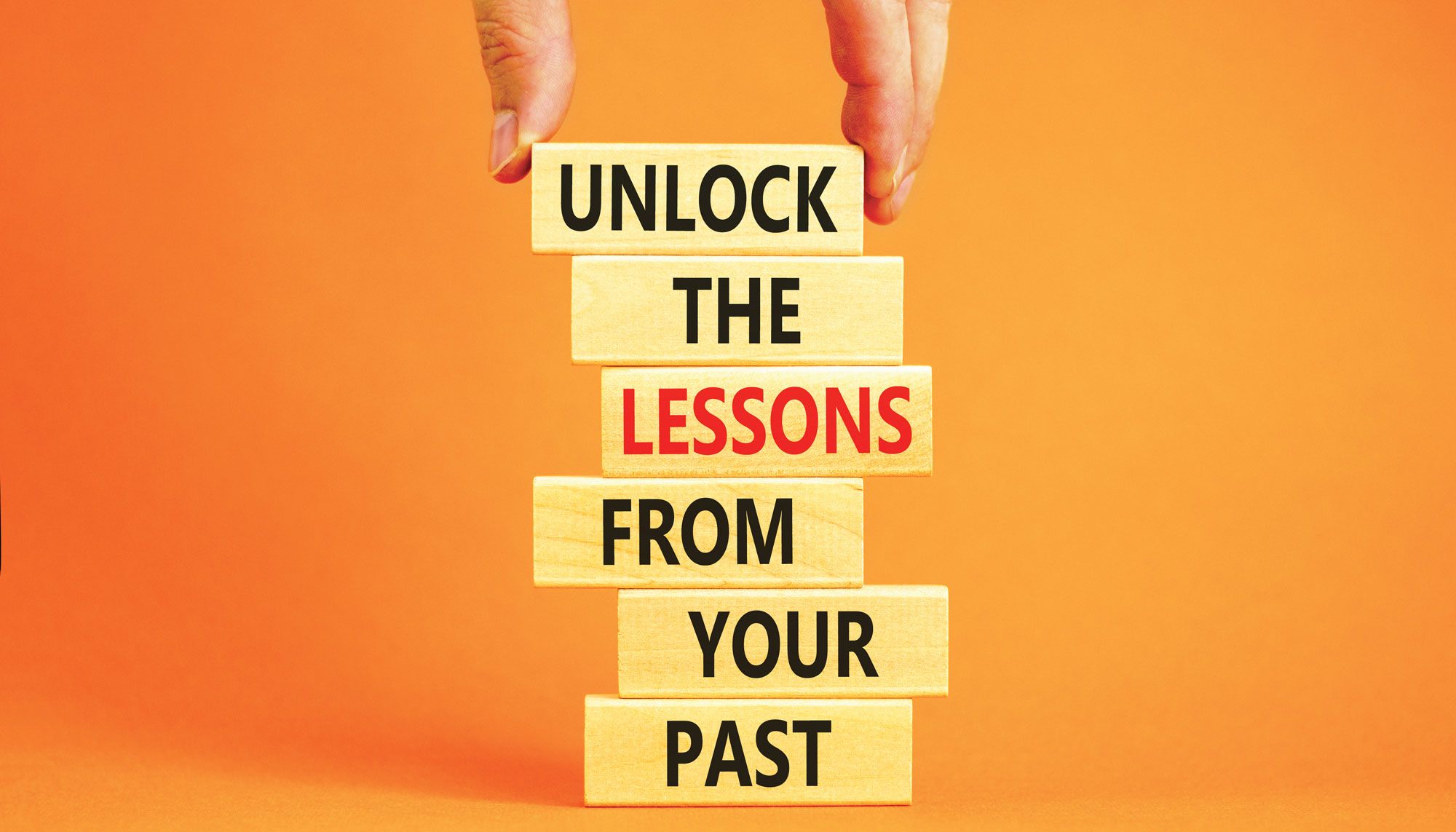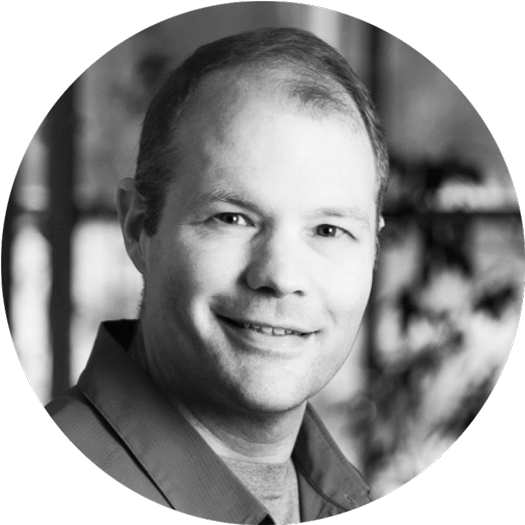
Self-Leadership is a Journey
Reliving your past mistakes and decisions probably isn’t your idea of fun. However, if your actions are the manifestations of your personality, then examining your past will help you better understand yourself.
by Brian Walch
ou can learn a lot about somebody by watching what they do. But how much time do you spend watching yourself?
At the beginning of 2022, I had a big decision to make. I was offered a senior position to help lead our firm into a new chapter. It was an exciting offer with a great team, and I knew we’d be successful.
It should have been an easy decision. Logically and financially, it made sense. It was a good move for my career, but I was wavering, and I wasn’t sure why.
Five years earlier I had voluntarily stepped out of a similar role. At the time, it felt like the only decision available. However, I hadn’t stopped second-guessing myself.
That decision had impacted my career more than I’d expected. Accepting this new position was a chance at redemption. It was a chance to prove I was capable. It would heal the wounds of my past mistakes.
Still, I had doubts.
By nature, we’re uncomfortable with uncertainty, which can lead to rushed decisions. Good leaders know that how decisions are made is critical when something feels off. It was time for some self-leadership.
I had been considering the external factors: the role, the people, and the company. So I asked myself, “How will I know if this is a good decision?”
I answered myself, “I will feel fulfilled and successful.”
The consequences of the wrong decision—being unfulfilled and unsuccessful—would be horrible. I needed to look inward and understand myself to make the decision.
Before I accepted the new position, I wanted to be confident that I would be successful personally and professionally. I decided to review my twenty-five-year consulting career to determine what inspired and moved me, where I’d had success, and what I thought of my choices now.
I followed a process I call Distilling Meaning from Manifestations. It yielded surprising results for me. Maybe it will for you, too.
First, set a time frame and context you will review. For me, it was my career as an IT consultant.
Next, go through the steps below, writing down any insights you have during the process. Depending on your time frame, this could be accomplished in a single session or throughout multiple days.
- Recall: Review your past and recall objective facts such as where you lived, how old you were, and what jobs you held.
- – Review your past as the person you are today, not who you were, so that you’re in an observing mindset.
- Reflect: Consider key events, highs and lows, and significant accomplishments during those periods.
- – Notice how you felt, how you reacted, and what the results were. Watch yourself like you’re an outsider. If you were angry or excited, observe yourself being angry or excited without judgment. What other emotions or reactions do you notice?
- Reason: Considering the themes and connections in those stories and events.
- – What patterns are you noticing about your actions, your thoughts, and your emotions? Any insights? How does that match what you think now? How would you lead yourself or your team now?
- Reconsider: Some of these stories are pivotal moments in your life. Some may be negative, leaving you cynical, bitter, or resentful.
- – Maybe you beat yourself up over how things went or can’t stop blaming others for how things turned out.
The story you tell yourself about these events shapes how you view the world. You’re growing and changing, though there can be benefits to occasionally reconsidering your actions.
Lead yourself or your team by asking questions. What did you learn from it? How did it positively affect your life? What if you’d made a different decision and it turned out poorly? How did the experience help you grow? How would you be different if you didn’t have that experience?
Having looked back and distilled meaning from your past, you can now look forward and use those insights to design your future.
I reviewed my career and recalled where I started, the different positions I’d had, how old I was during those times, where I was living, and events from my personal life.
I reflected on important moments like how I felt running my first project, the mentoring I’d received from a senior project manager, and leading a team on a high-risk project. I remembered how I felt when employees told me they appreciated my counsel. I reflected on my successes as a recruiter and a manager and what I enjoyed about the roles.
I gained confidence in myself as I understood connections and themes. Although I’d always identified myself with titles like “developer,” “project manager,” or “director,” I now knew that wasn’t important to me. I was inspired when I helped others be productive and successful.
Reflecting on my past also helped clarify why I had accepted the HR director position. My motivation had been to positively impact others, including my coworkers, my team, the business, and my clients. That was the reason I’d taken the position.
However, despite being successful, five years after accepting the position I voluntarily stepped out of it. That experience was complicating the decision about the current offer. Sometimes leadership isn’t just inspiration and motivation. It is about meeting the hard things head-on. I knew I needed to reconsider that decision.
I asked myself questions like, “What can I learn about myself?” and “How can I see this situation differently?”
Through the process, I understood things more clearly. Though I might do it differently today, I understood why I had stepped down. I had been impatient, and support wasn’t offered, nor did I seek it out. I was able to make peace with my decision. With that understanding and perspective of my past, I could decide about the current opportunity with confidence.
The title wasn’t important to me; I just wanted the business to be wildly successful. Although I had a reputation as someone willing to do what it takes, I was most successful when I was doing work I cared about.
Major life decisions are rarely easy. Similarly, the decisions you make as a leader take on more significance as you progress in your career. The hard decisions are the important ones, and they must be made with clarity and conviction.
Reviewing your past actions and distilling meaning from manifestations will give you the confidence and courage to make hard decisions and move forward with purpose.
It did for me. It became clear that the position offered to me wasn’t the right fit. What’s more, I understood it was time to let go and move toward work that would fulfill me and fully use my strengths.
I declined the position and transitioned out of the firm. I launched my own business focused on helping managers be more successful in their personal and professional lives. It was a radical move, but when you realize you’re not on the right path, change is unavoidable.
As a leader, you can also practice this process with your team. In fact, distilling meaning from the past can be a gift, allowing the team to make peace with perceived mistakes, understand their strengths, and be more engaged in their future.
Follow a similar pattern of recalling and reflecting over a designated period. As the leader, summarize the stories and events that emerge and facilitate the team in identifying connections and themes. Take the time to reconsider any stories holding the team back. Learn from the past and then, as a team, determine how it will impact the future. You can learn a lot by watching yourself. By deliberately examining your past, you can intentionally design your future.

During his twenty-five-year career, Walch worked with employees and leaders across HR, IT, finance, operations, and the C-suite. He has extensive experience in recruiting, retention, and employee development. He has been the technical lead or project manager for projects that have transformed small businesses, modernized government agencies, and improved enterprise-wide systems and processes.